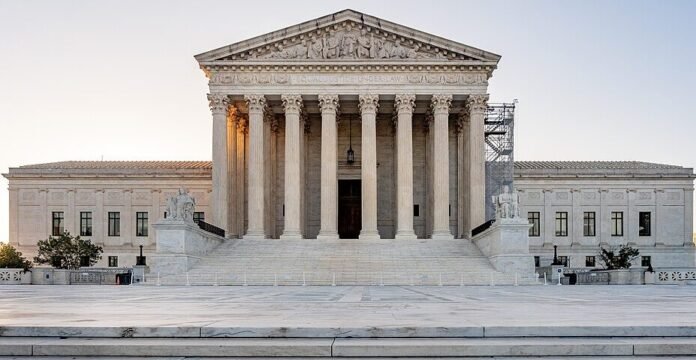America’s top court wrestles with the Trump administration’s explosive attempt to restrict birthright citizenship, as justices question historic precedent and judicial power
The U.S. Supreme Court found itself starkly divided on Thursday during a high-stakes hearing that could redefine the scope of American citizenship. At the heart of the storm: a controversial executive order signed by Donald Trump earlier this year that seeks to strip birthright citizenship from children born on U.S. soil to undocumented immigrants or temporary visitors.
In a session lasting more than two hours, justices grappled with whether the longstanding interpretation of the Fourteenth Amendment — that anyone born on U.S. soil is automatically a citizen — should still hold.
The Trump administration argued otherwise.
“This order reflects the original meaning of the Fourteenth Amendment,” said Solicitor General D. John Sauer, representing the government. “It guaranteed citizenship to the children of former slaves, not to illegal aliens or temporary visitors.”
The case, brought by immigrant rights groups and 22 U.S. states, challenges the sweeping nature of Trump’s executive order. Several federal district judges swiftly blocked the move, issuing nationwide injunctions — a judicial tool that prevents enforcement of the policy across the entire country while litigation proceeds.
However, Trump’s lawyers urged the high court to ban such broad rulings altogether, arguing that district judges should not wield such expansive power. “They have exceeded their constitutional authority,” said Sauer.
The justices’ reactions were mixed. While the court’s conservative bloc has previously voiced scepticism about universal injunctions, they appeared more cautious on Thursday. Even those sympathetic to limiting judicial overreach seemed troubled by the administration’s full-throated assault on a century-old understanding of citizenship rights.
Justice Sonia Sotomayor posed a hypothetical scenario that cut to the heart of the matter: what if a president issued an order to confiscate every firearm in the nation? Would the courts be powerless to act?
“Would we have to sit back and wait until every plaintiff whose gun is taken comes into court?” she asked sharply.
The court’s liberal justices appeared united in defending the existing interpretation of the Fourteenth Amendment, citing both precedent and practical implications. The birthright citizenship clause, they argued, serves as a foundational element of American identity, enshrined in post-Civil War law to prevent the denial of rights to former slaves and their children.
In stark contrast, the Trump administration insists the clause was never meant to apply so broadly. This position, however, flies in the face of a landmark 1898 Supreme Court decision which upheld the right to citizenship for all children born on U.S. soil, regardless of their parents’ immigration status.
Outside the courtroom, reactions were swift. Civil liberties groups warned that reversing this precedent could create a “permanent underclass” of stateless individuals. Immigration lawyers also cautioned that such a move would unleash chaos in immigration offices and courthouses nationwide.
The legal battle unfolds in a volatile political climate, where immigration remains a lightning rod issue and executive power is under intense scrutiny. While the Supreme Court has yet to indicate when it will rule, Thursday’s hearing made clear that the outcome could reshape not only immigration law but the very meaning of American citizenship.
For now, Trump’s order remains blocked. But the justices’ final decision could either reaffirm a cornerstone of constitutional law, or shatter it.
